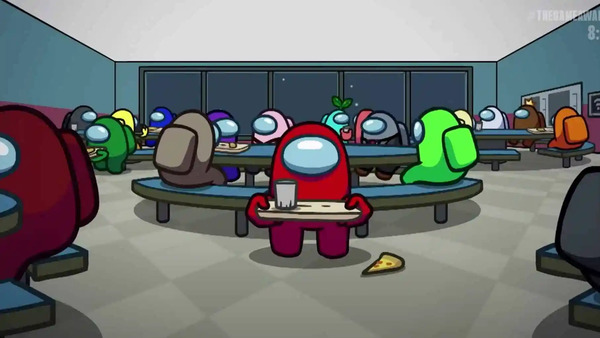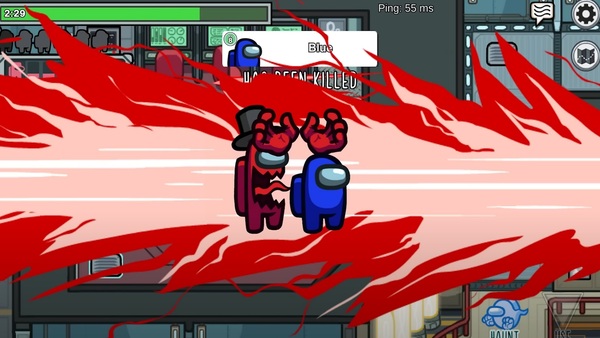“Among Us” is a social deduction game that relies heavily on communication and deception for a fair and enjoyable experience. However, in public lobbies, communication breakdowns have become a significant issue. Language barriers, toxic behavior, and limited chat options often lead to misunderstandings and misjudgments, impacting the game’s core dynamics and players’ enjoyment. This article delves into these communication challenges and explores possible solutions to foster a more inclusive and cooperative environment.
H2: Understanding the Communication Challenges in Public Lobbies
Public lobbies in “Among Us” are accessible to everyone, leading to a diverse player base with varied languages, cultures, and communication styles. This diversity, while enriching, also brings challenges.
H3: The Role of Language Barriers
In global lobbies, players often encounter language barriers, making it hard to communicate their observations or suspicions. This issue often leads to quick, uninformed votes and a lack of meaningful interaction.
H3: The Impact of Limited Chat Features
The in-game chat has basic messaging capabilities, which can be restrictive. Without expressive options like tone indicators or additional vocabulary, it’s challenging for players to convey their suspicions accurately.
H2: Consequences of Poor Communication on Game Fairness
Effective communication is essential to fair gameplay, especially in a game where deception is a core mechanic. Poor communication can lead to false accusations and hasty votes, which disrupt game balance.
H4: Increased False Accusations and Unfair Voting
Without clear communication, players often rely on visual cues or arbitrary suspicions, resulting in frequent misjudgments. This disrupts the game flow and creates a frustrating experience for players who want to play strategically.
H4: Difficulty in Defending or Explaining Actions
When accused, players must quickly defend themselves, but limited chat features and language misunderstandings hinder their ability to respond. This inability to communicate leads to Impostors being caught too easily or Crewmates being unfairly ejected.
H2: Toxic Behavior in Public Lobbies
Toxicity in online gaming is common, and “Among Us” is no exception. In public lobbies, aggressive language and hostile behavior are prevalent, leading to an unfriendly environment that deters players.
H3: Common Forms of Toxic Behavior in Among Us
From name-calling and blaming to “vent-shaming” (harshly judging players for their in-game actions), toxic behavior disrupts the social dynamics and makes the game less enjoyable for casual players.
H3: How Toxicity Affects New Players
New players, in particular, suffer from toxicity. Without experience in handling accusations, they are often targeted by more seasoned players, leading to premature exits and discouraging newcomers.
H2: Limited Chat Options and Player Frustration
Among Us initially relied on free chat, but later updates added Quick Chat, a feature with pre-set phrases to help younger players or those uncomfortable with typing. However, this system has its drawbacks.
H4: Quick Chat’s Limitations on Free Expression
While Quick Chat assists younger players, it limits responses, which reduces flexibility. Players can’t express detailed observations or strategies, often resulting in vague or confusing discussions.
H4: Player Preferences Between Free Chat and Quick Chat
Players accustomed to Free Chat feel restricted by Quick Chat. While it’s a useful option, it divides players based on communication preferences, often resulting in Quick Chat users feeling disconnected.
H2: The Role of Private and Public Lobbies in Communication
Public lobbies in Among Us serve as a social hub but are limited by the lack of structure that private lobbies offer. In private lobbies, players usually know each other, enabling smoother communication and more enjoyable games.
H3: Differences in Communication Between Lobby Types
Private lobbies allow players to communicate openly, often through external channels like voice chat. This communication flexibility improves gameplay dynamics and player satisfaction, unlike in public lobbies, where misunderstandings are common.
H3: Why Public Lobbies Need Structured Communication Improvements
Improving public lobby communication could bridge the gap between the structured and open nature of private games and the random nature of public games, leading to a more positive experience.
H2: In-Game Voice Chat: The Pros and Cons
The introduction of voice chat could help improve communication but also brings potential drawbacks. In-game voice chat has been discussed as a solution, yet implementing it could lead to new issues.
H4: How Voice Chat Could Improve Gameplay
Voice chat enables players to communicate in real-time, adding clarity and reducing misunderstandings. It would allow for quicker responses, improving the flow of accusations, defenses, and strategies.
H4: Potential Drawbacks of In-Game Voice Chat
Despite the benefits, voice chat could increase toxicity and make the game harder for younger players to access safely. It also poses challenges around privacy, safety, and moderation.
H2: Community Recommendations for Improved Communication
Players and community members have suggested changes to the chat and communication systems to improve public lobby interactions. These suggestions could lead to meaningful updates.
H3: Addition of Universal Symbols and Emojis
Symbols and emojis, such as thumbs-up or down, could convey agreement or suspicion without language, allowing players to react without typing, helping bridge language gaps.
H3: Implementing Chat Filters for Age-Appropriate Play
A more dynamic chat filter could ensure that younger players feel safe while keeping communication channels open. Filters for offensive language and an option for reporting would help maintain a friendlier environment.
H2: Benefits of a Report and Review System
A report and review system would allow players to flag inappropriate behavior, leading to sanctions for repeat offenders. This could also help reduce toxicity and ensure safer communication.
H4: How Reporting Could Deter Toxic Players
If players who display toxic behavior or exploit the chat receive warnings or temporary bans, it could create a deterrent, improving communication quality in public lobbies.
H4: Moderation for Ensuring Compliance
Periodic moderation or the use of automated filters could improve player behavior and ensure a safer communication environment for all players.
H2: Role of Game Design in Promoting Positive Communication
Game design choices, such as how accusations are made and evidence is shared, can influence player behavior. Adapting some design elements could promote better communication in public lobbies.
H3: Structured Accusation and Defense Phases
Adding dedicated phases for accusations and defenses would provide structure, giving players more time to communicate and reducing impulsive votes based on limited information.
H3: Displaying Helpful Prompts During Meetings
Prompts, such as reminders to be respectful or avoid toxic language, can subtly influence players’ behavior, creating a friendlier environment during in-game discussions.
H2: Developer-Community Collaboration for Lasting Solutions
Community feedback has been essential in shaping updates to Among Us, and addressing communication issues would benefit from collaborative efforts between developers and players.
H4: The Value of Polls and Feedback Surveys
Regular feedback from players could give developers insights into what communication features are most needed or desired. Polls on preferred updates or adjustments could inform developer priorities.
H4: Engaging Players in Beta Testing New Chat Features
Beta testing specific updates, like improved chat systems or in-game voice chat, would allow developers to assess real-world effectiveness and address any issues before a full release.
Conclusion
Communication in public lobbies remains a challenge for “Among Us,” impacting game fairness and player enjoyment. Addressing these issues through a mix of design changes, chat improvements, and community collaboration can enhance the experience for all players. By fostering an inclusive and respectful communication environment, the game can retain its player base while ensuring a fair, enjoyable, and engaging experience.


